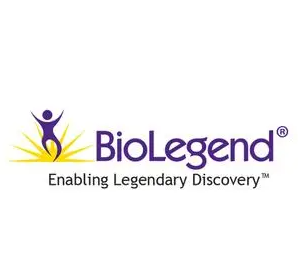Product Details
- Verified Reactivity
- Mouse
- Antibody Type
- Monoclonal
- Host Species
- Rat
- Immunogen
- Recombinant Mouse CCL11, (amino acids (His24-Pro97, Accession# NM_011330), were expressed in E. coli.
- Formulation
- Phosphate-buffered solution, pH 7.2, containing 0.09% sodium azide.
- Concentration
- 0.5 mg/ml
- Storage & Handling
- The antibody solution should be stored undiluted between 2°C and 8°C.
- Application
-
ELISA Capture - Quality tested
- Recommended Usage
Each lot of this antibody is quality control tested by ELISA. For ELISA capture applications, a concentration of 0.5 ?g/mL is recommended. To obtain a linear standard curve, serial dilutions of CCL11 recombinant protein ranging from 500 to 7.81 pg/mL are recommended for each ELISA plate. It is recommended that the reagent be titrated for optimal performance.
- RRID
- AB_2686953 (BioLegend Cat. No. 683202)
Antigen Details
- Structure
- Chemokine
- Distribution
-
Epithelial cells, smooth muscle cells, dendritic cells, fibroblasts, mast cells, and Th2 lymphocytes.
- Function
- Recruits eosinophils in allergic responses. Stimulates eosinophil release from bone marrow, increasing levels of circulating eosinophils. Induced by pro-inflammatory cytokines (IL-4, IL-13, TNF-7alpha;, and IFN-α).
- Interaction
- Eosinophils
- Ligand/Receptor
- CCR3
- Cell Type
- Epithelial cells, Dendritic cells, Fibroblasts, Mast cells, Th2, Eosinophils
- Biology Area
- Angiogenesis, Cell Biology, Immunology, Neuroinflammation, Neuroscience
- Molecular Family
- Cytokines/Chemokines
- Antigen References
-
1. Crump MP, et al. 1998. J. Biol. Chem. 273:22471.
2. Conroy DM, et al. 2001. Respir. Res. 2:150.
3. Salcedo R, et al. 2001. J. Immunol. 166:7571.
4. Hadjicharalambous C, et al. 2004. J. Allergy Clin. Immunol. 113:657.
5. Kaehler J, et al. 2006. J. Investig. Med. 54:446.
6. Levina V, et al. 2009. Clin. Cancer Res. 15:2647. - Gene ID
- 20292 View all products for this Gene ID
- UniProt
- View information about CCL11 on UniProt.org








